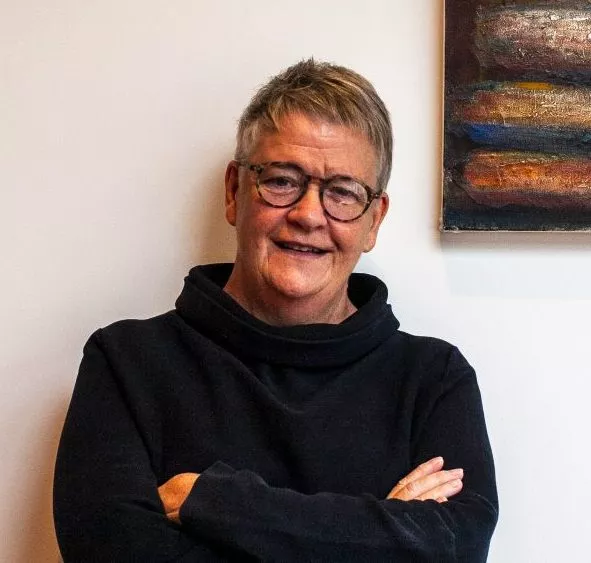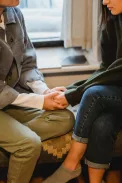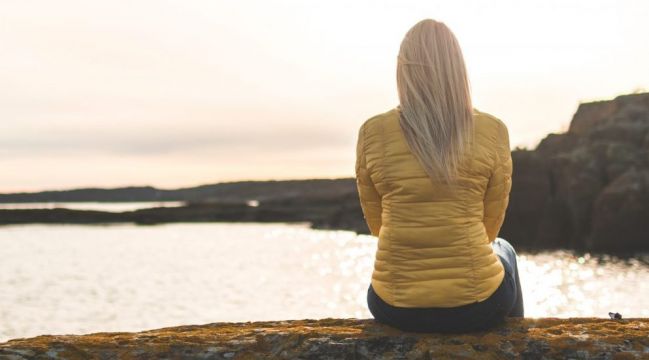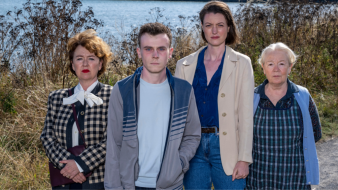The threat of the Covid-19 pandemic may be easing, but Ireland’s epidemic of domestic, sexual and gender-based violence (DSGBV) continues to increase. This presents many challenges for Safe Ireland, the only national development and co-ordination body with responsibility for domestic violence.
Safe Ireland’s CEO Mary McDermott explains that “DSGBV is not a private matter but a societal problem.
"The causes are systemic, the effects wide-reaching, and the solutions critically under-developed. If we want to reduce the menace of domestic violence we have to work together, to make it our collective business.”

The increase of DSGBV in Ireland follows a global upward trend. Safe Ireland is responding to the problem at national level by investigating its causes and effects; by advising on and influencing national policy; and by developing guidelines for best practice in the delivery of local support services.

Social expectations still place undue responsibility on a woman to ‘leave’ a violent home (rather than on a perpetrator to be removed) and where there are children present, the extended burden of safeguarding them, rests entirely on the mother.
Frontline services are the first port-of-call in all of these circumstances and over the past year they have been overwhelmed with demand for safe accommodation, legal advocacy, welfare advice, and therapeutic supports.
Refuge, remote court hearings, court accompaniment, childcare, social welfare advocacy, healthcare referral, and counselling support are just some of the interventions provided alongside more fundamental assistance such as paying for food, clothing, and transport.
Economic Cost of Violence
The enormous cost of domestic violence to both the individual and to the state has yet to be fully quantified. However, a recent report by Safe Ireland and NUI Galway – titled Assessing the Social and Economic Cost of Domestic Violence - found that the aggregate cost of domestic violence to a woman is approximately €113,500 over 20 years or more. This does not include the enormous cost of domestic violence to the State, including the delivery of frontline domestic services, the provision of housing, healthcare services, social welfare, policing, judicial costs, or the cost of incarceration, which researchers have conservatively estimated to be approximately €2.2 billion per year.
One of the most significant findings of the report was that women, on average, remain in abusive relationships for fifteen of the twenty-year time span it can take to reach safety and freedom.
This highlights the complex relationship between poverty, domestic violence, and coercive control. When women are in, leave, or are recovering from an abusive relationship, they face an increasing threat of poverty, especially where financial control has been a core element of their abuse.
'Safe Ireland Survivors’ Fund'

In urgent response to the first lockdown in 2020, Safe Ireland set up a Covid-19 Emergency Fund to provide an immediate funding lifeline directly to women and children. This was distributed through its 39 affiliated services.
The new Safe Ireland Survivors’ Fund has launched today, bolstered by generous funding from Airbnb, and will enable the frontline services to provide continuity support for women moving to the next phase of their journey in addition to providing greater therapeutic supports for children. Whilst the fund cannot, and will not, replace the obligations of the State and statutory funders, the flexible funding serves a valuable function by allowing frontline responders to tailor their services to the specific needs of the woman in question.
Business and Community Leadership
Airbnb has displayed tremendous corporate leadership in its work with Safe Ireland over the past year. The company first partnered with Safe Ireland in 2020, creating an initiative to provide emergency hotel accommodation for women and children which helped supplement the national deficit in refuge spaces.
With the launch of the Survivors Fund, Airbnb’s ongoing support is contributing to saving lives and mitigating the rates of femicide and infanticide in Ireland.
Everyone can play their part in a safer future for women and children
Corporate governors can follow Airbnb’s lead and become instrumental in creating a safer Ireland for women and girls.
Large companies can form a strategic partnership with Safe Ireland to develop new innovative initiatives going forward; local businesses and collectives can initiate a local fund in partnership with their local DV service for use in their community; HR and People Managers can organise in-service training to support victims and survivors in the workplace; community groups can organise fundraising or awareness campaigns; and individuals can make micro donations to their local service or directly to Safe Ireland. Everyone can play their part in a safer future for women and children.
To find out more go to www.safeireland.ie or call us on 090-6479048








